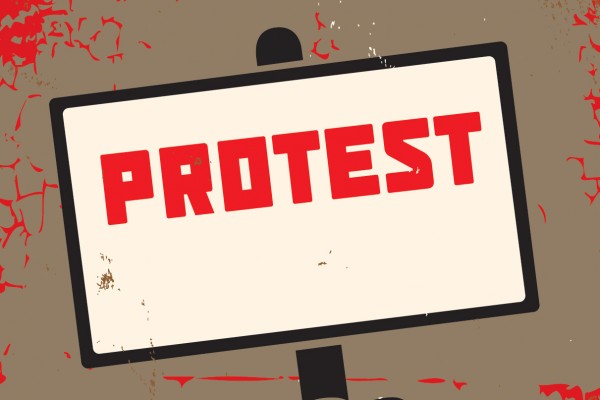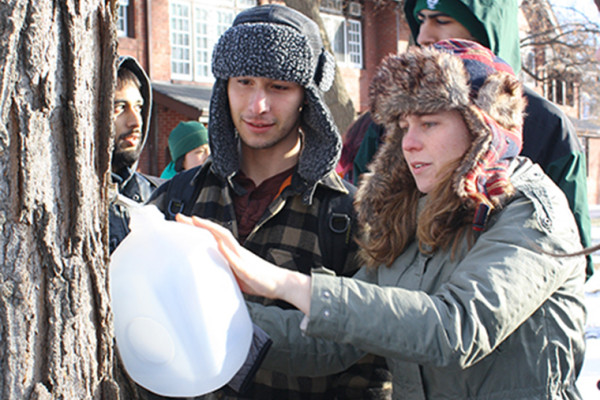Maine becomes first state to provide college savings for all newborns
On March 6, the state of Maine became the first in the United States to make college savings for newborns universal and automatic, putting into practice research pioneered by Michael Sherraden, PhD, the George Warren Brown Distinguished University Professor and director ofthe Brown School’s Center for Social Development at Washington University in St. Louis.
New chef promises more variety, local ingredients at Ibby’s Bistro
Jon Lowe is the new chef at Ibby’s in WUSTL’s Danforth University Center. Learn more about Lowe, who loves French cooking and making granola with his 3-year-old daughter. He previously worked at Clayton seafood restaurant Oceano Bistro.
Pageant debuts during Africa Week
Africa Week returned to WUSTL last week with the ever-popular fashion show and the debut of the Mr./Miss ASA Pageant. Senior Ola Abiose (right) struts the runway during one of the activities organized by the African Students Association.
Community invited to give feedback on ‘For the Sake of All’ project March 18
Last fall, researchers in St. Louis released five policy briefs in a groundbreaking study on the health and well-being of African Americans in the region. Now it’s time for the community to weigh in on “For the Sake of All: A Report on the Health and Well-Being of African Americans in St. Louis.” A Community Feedback Forum will take place from 2-5 p.m. Monday, March 3, in the Learning Lab at the Forest Park Visitor Center, 5595 Grand Drive on the north side of Forest Park near the
Missouri History Museum.
The longevity revolution
Today, two-thirds of those ever reaching the age of 65 are on the planet. Further, university researchers may have the keys to help people live even longer, healthier and more productive lives — but is society ready?
Denotation: Disfavored speech
Experts weigh in on the definition and context of a popular term.
Genetic privacy in a new era
Lainie Friedman Ross, MD, PhD, of the University of Chicago, addresses the panel at the Policy Forum program “First, Do No Harm: Genetic Privacy in the Age of Genome Sequencing” in Brown Hall Feb. 25. Among other topics, panel participants addressed the ethical implications of genetic privacy and incidental findings that may occur because of genome testing.
Allman, new Center for the Humanities director, shares thoughts on its importance, direction
Jean Allman, PhD, the J.H. Hexter Professor in the Humanities in Arts & Sciences and chair of the Department of History, recently was named director of WUSTL’s Center for the Humanities. Allman shares some thoughts on the center’s ever-growing importance and role in highlighting the rich diversity of the humanities.
High school students can experience college with WUSTL summer programs
WUSTL High School Summer Experiences offers students from the United States and around the world a chance to experience all facets of college life in both for-credit and noncredit options. Programs range from one to five weeks, with both residential and commuter options.
Maple trees on campus tapped for class — and brunch
Washington University in St. Louis students joined Bon Appétit staff in preparing maple syrup and other locally collected foods for brunch this month at Ibby’s Bistro, all for their class with biology senior lecturer Stan Braude, PhD. The students tapped Danforth Campus maple trees and collected berries on the South 40 and acorns in nearby Forest Park.
Older Stories



